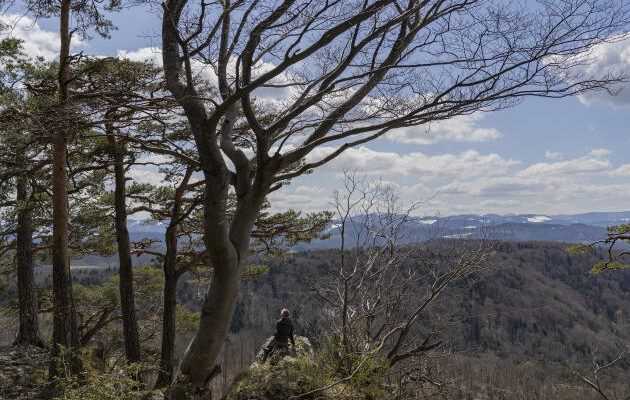InvestigationWhile in France the National Assembly did not manage to agree on a bill on “medical assistance in dying”, “Le Monde” followed the path of a German sexagenarian decided to resort to assisted suicide in Switzerland, a country where this practice is authorized.
That Monday, Thomas drove Doris, his wife, from Frankfurt to Basel, so that she could die there. From the German city to the Swiss city, it is just over 300 kilometers by road. Even in times of epidemic, despite the quarantine rules officially imposed on foreigners, checks are extremely rare and the couple arrived safely at the hotel, a white mansion on a small cobbled square, just outside Basel. Outside, spring still seemed to hesitate to settle in, passing in a few minutes from a sleet of snow to the most brilliant clearings.
Did the couple only pay attention to the seasons, to the nearby Rhine, to the wooden hut on the square where the few tourists drink a beer in the late afternoon? “I received them myself, as I do every time for these people who came from all over Europe and, in years without an epidemic, from all over the world to die here”, softly recalls Bojana Krüger, the manager of the hotel. Apart from her and her employees, most of her clients don’t know what the Swiss have come to call ” the death tourism ‘ : thousands of foreigners, the majority of whom come from France, Germany or Great Britain, to be medically assisted to die.
Intimate experience
The appointment to assist Doris was scheduled for Wednesday morning. At the hotel, we were a few rooms apart from this German couple in their sixties. On the same road that leads to the outskirts of Basel, where Eternal Spirit, the association that was supposed to help Doris die, rents the small apartment where medically assisted suicides (SMA) take place.
This very special moment is most often an intimate experience. There was indeed this day in 2019, when about twenty people had gathered around one of their own decided to end it, but such a gathering remains the exception. Most of the time, we come alone with our partner, sometimes with a son, a daughter or just a dear friend. Thomas and Doris had convinced their only boy, still a student, to stay in Germany rather than accompany his mother. After thirty years of marriage, they wanted to be together until the end. So we made ourselves invisible, in their footsteps.
There is something tragic and, to begin with, surprisingly bureaucratic about following the journey of this engineering couple under such circumstances. The law, in this predominantly Protestant Switzerland which places individual responsibility at the top of its values, is certainly much more flexible than that of its neighboring countries. “Anyone who, driven by a selfish motive, will have incited a person to suicide, or will have given him assistance with a view to suicide, will be punished with a custodial sentence of five years at most or a financial penalty”, only stipulates article 115 of the Swiss penal code. “A selfish motive”, that leaves a lot of margin… The ethics committee and the Swiss medical academy have however recommended a set of additional conditions which the associations which practice the ADM follow: the person must be capable of discernment; his desire to die must be long-lasting and constant, and stem from severe suffering associated with the disease.
You have 72.87% of this article to read. The rest is for subscribers only.
